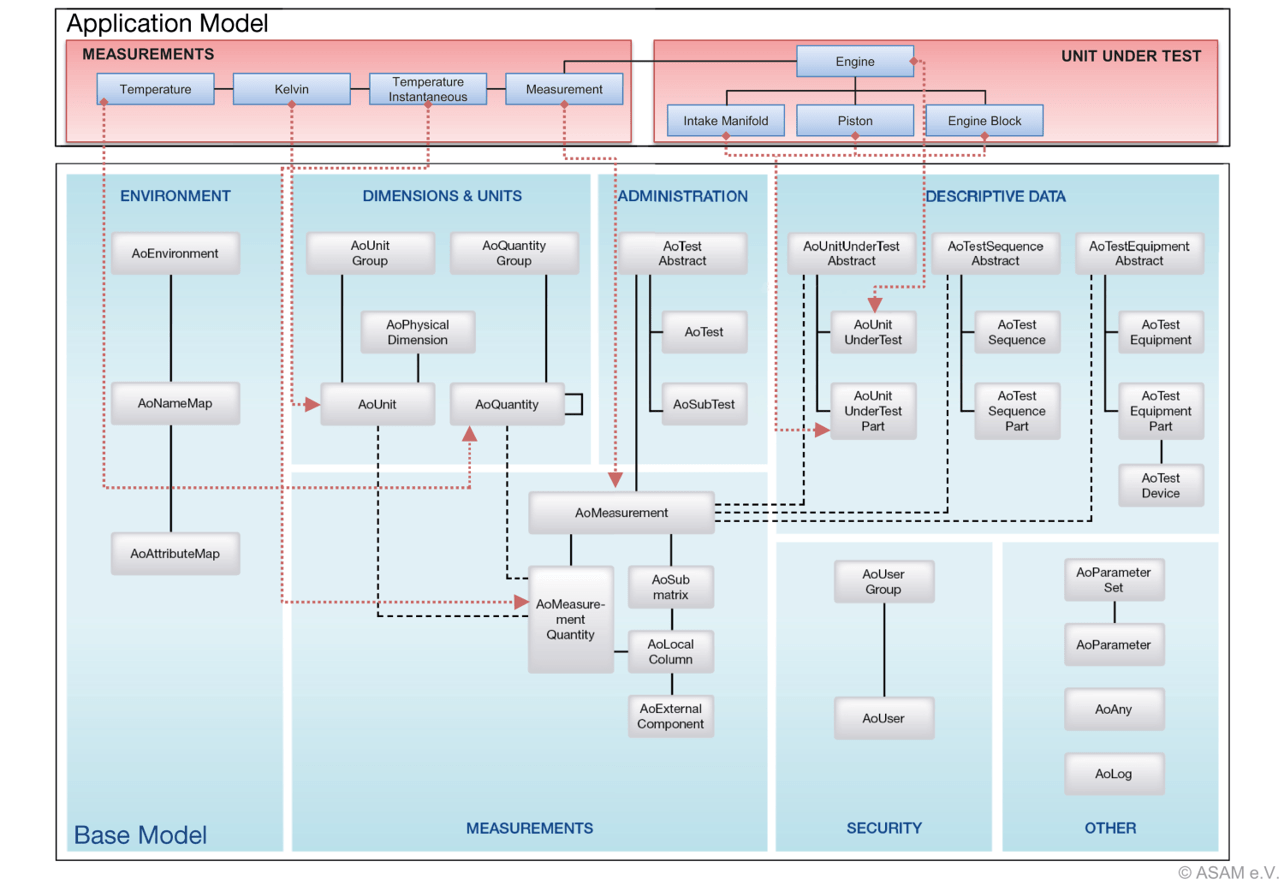Abo ut
ASAM ODS: A proven standard for measurement data management
With ODS (Open Data Services) the ASAM (Association for Standardization of Automation and Measuring Systems) provides since many years a standard, that has proven itself as a basis for the management of measurement data. Well-known companies all over the world use this standard. These include Audi, AVL, BMW, Bosch, Daimler, GM, Honda, Horiba, MTU, Porsche, PSA Peugeot Citroen, Tata Motors, Toyota and many others.
ODS focuses on the persistent storage and retrieval of testing data. The standard is primarily used to set up a test data management system on top of test systems that produce measured or calculated data from testing activities. Components of a complex testing infrastructure can store data or retrieve data as needed for proper operation of tests or for test data post-processing and evaluation. A typical scenario for ODS is the use of a central ODS server, which handles all testing data produced by test beds.

The major strength of ODS as compared to non-standardized data storage solutions is that data access is independent of specific tools and that the data model of the database is highly adaptable. Despite this flexibility, clients can query the data from the database and still correctly interpret the meaning of the data. Application models derived from the generic ODS Base Model cover the data storage needs for specific test domains like NVH, Crash, Engine Development and others. A standardized API (Application Programming Interface) allows access via OO-methods (object oriented).
ODS servers act as a data hub for different test beds and measurement devices from different vendors. Data can be accessed independently of their origin via the same methods and interfaces. This even extends to mass-data stored in external files (ASAM MDF), where the DB only holds a pointer to that external storage location (“mixed mode”). The same API methods are used for DB-internal measurement data access as well as to external data access, so that users have completely transparent access to the data. Furthermore, ODS servers are scalable, which allow to extend the data models and add more clients to the overall tool chain.
